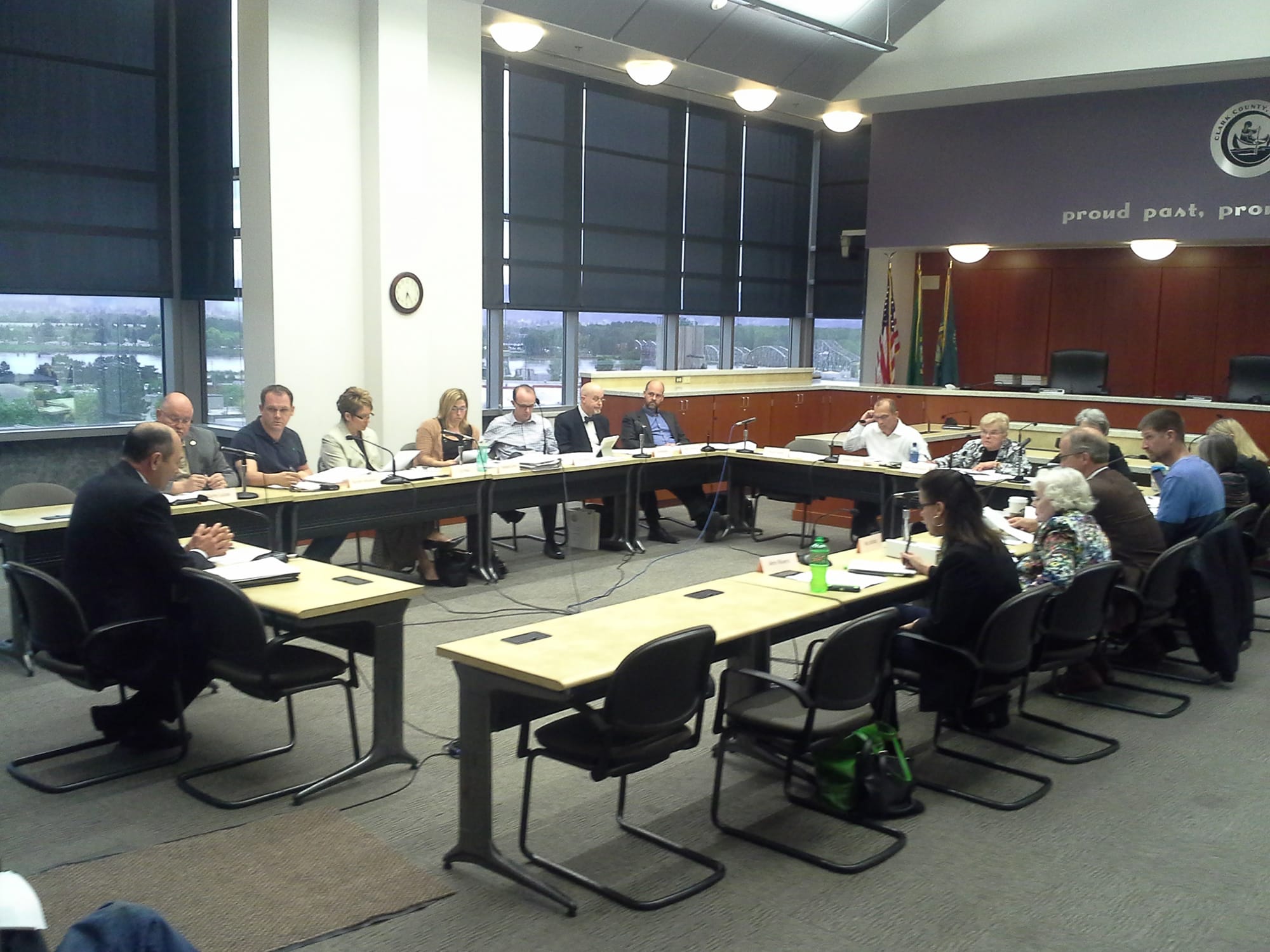Voters will have a chance to reshape Clark County government this fall, after the people tasked with drafting a new county charter produced their final vision of reform Tuesday night.
Voting 11-3, the Clark County Board of Freeholders mustered enough support to approve a proposal after several months of brainstorming and debates. The final product would implement several fundamental changes, including doing away with the county’s three-member commission and replacing it with a five-seat council.
Four of the councilors would represent newly drawn districts throughout the county, and the fifth would be elected for an at-large position to serve as the chair. The current salaries for each commissioner — roughly $106,000 a year — would be cut in half by 2017 to form the new salary for each council seat: $53,000 a year.
The charter would create a county manager position to serve as the chief executive. The councilors would appoint the county manager, who would be in charge of hiring and supervising all administrative department heads.
Supporters said the new structure would establish a clear separation of powers between the legislative and executive branches, but opponents disagreed, naming this as one of their main sticking points.
“This charter reduces the accountability by giving more responsibility and independence to unelected bureaucrats,” said freeholder Peter Silliman, who along with freeholders Tracy Wilson and state Rep. Liz Pike, R-Camas, voted against the new charter. “At the same time, it reduces the authority and effectiveness of those directly accountable to the people, the commissioners.”
The freeholders also propose creating a county-level initiative and referendum process for voters and a series of periodic reviews of the charter. The new government would first come up for review five years after approval and then about every 10 years after.
Before the vote, Freeholder Vice Chairman Joe Zarelli said the structure of Clark County government has long been outdated.
“We have a county that’s approaching a half a million people, and we haven’t changed the governing structure since the 1800s, when there was a handful of people,” he said.
Zarelli said the new charter boils down to just a few simple changes that would be easy for the public to understand and give voters tools for challenging their elected officials.
“You can express the pieces you don’t like, but in all, this takes us in a better direction,” he said.
Voters elected 15 people to the Board of Freeholders late last year for the express purpose of drafting the charter. All but state Sen. Ann Rivers, R-La Center, were able to attend the board’s last meeting Tuesday night — Rivers was absent because of a family emergency.
Now with the vote out of the way, the board has dissolved. Freeholder Chairwoman Nan Henriksen commended her board members for working together on what amounted to a difficult compromise.
“I know that none of us have gotten everything we wanted in this charter,” Henriksen said. “Some have gotten a lot more. Some wanted not so much. But I’m very proud of the way that you have custom-made this charter to deal with the concerns of the minority on so many of these issues.”
Now voters in Clark County will get the final say on the new charter in the November election.




